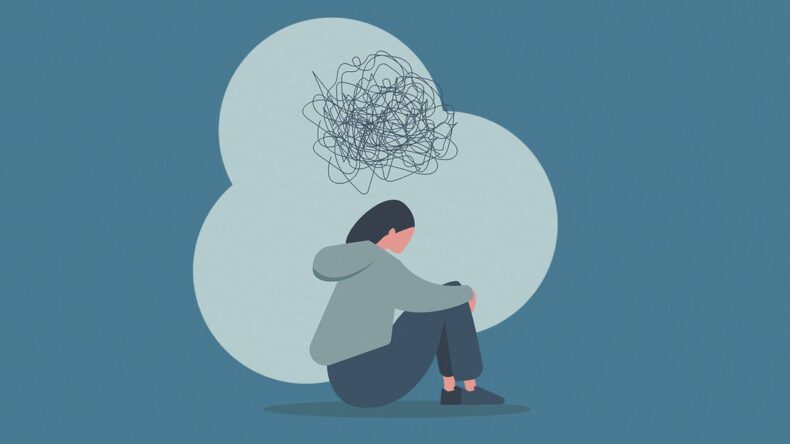THE ASSOCIATION BETWEEN MENTAL HEALTH AND SUICIDE .Mental health is still a relatively new area of study in India, and there are still many myths and taboos concerning it. It is a major public health concern and in 2001, the World Health Organization (WHO) released a report concentrating on mental health as the top priority on its agenda, highlighting the need for new knowledge and optimism. The 2001 World Health Report on Mental Health shed new light on mental diseases and offers hope to individuals who suffer from them and their families. The report looks at the social and psychological costs of mental illness, as well as the main contributors and treatment options. It also offers a critical examination of the health services and provisions available, as well as planning and recommendations for use in healthcare systems. The World Health Organization’s mental health Global Action Program tried to bridge the gap between what is required and what is available to mentally ill patients and their families. The importance of WHO’s work can be seen in the countries that are concerned about improving mental health issues around the world.
THE ASSOCIATION BETWEEN MENTAL HEALTH AND SUICIDE .Here, we are going to discuss the association between mental health and suicide. According to the researchers, some people who take their own lives may not want to die, but feel they have no other option to end their suffering. Those who commit suicide may be overwhelmed and seeking relief from their distress. It is critical to recognize that suicide is the consequence of a combination of factors in a person’s life, rather than a single incident or debate. Suicide is complicated; there is no single cause.
Suicide indications and symptoms:
- Feeling hopeless and helpless
- Talking about death
- Acting recklessly and impulsively
- Appearing sad or depressed most of the time
- Changed eating and sleeping habits
- Lack of interest in things which were previously important
- Increasing alcohol and drug use
- Withdrawing from friends, relatives and society
- Giving away possessions
Suicide risk can be influenced by a variety of circumstances, like: –
- Financial issues
- Criminal issues
- Social Isolation
- Mental Illness
- Aggressive tendencies
- Bullying
- Sexual violence
- Substance disorder
- Family history of suicide
- Relationship problems like loss or violence
- Adverse childhood experience
- Serious illness
- Barriers to health care
- Beliefs such as suicide is a noble solution of a personal problem
- Unsafe media portals of suicide
- Negative surroundings
- People at danger have easy access to fatal weapons
- Feeling of isolation
After a suicide attempt:
A suicide attempt can cause a wide range of intense and unexpected feelings among family and friends, which can alter fast and unpredictably. There are no right or wrong responses.
It can be hard and intimidating to support someone who has attempted suicide. It is critical to take care of yourself. Make time for yourself and keep in touch with friends, family, and significant others on a regular basis. To talk about how you’re feeling, reach out to support programmes, groups, or health experts.
Learn about the warning signs and symptoms of suicide. It’s critical not to hold oneself responsible for the attempted suicide. It might be quite difficult to prevent someone from taking their own life.
What to do when someone lets you know they are suicidal?
If you believe a friend or relative is in danger, talk to them about it freely and without judgement. Rather than instilling the notion of suicide in someone’s mind, a sympathetic discourse allows them to express their distress.
Encourage or assist the individual in seeking professional assistance, such as from a mental health professional or a support hotline, such as:
13 11 14 (Lifeline) (24 hours)
Children’s Helpline: 1800 551 800 (24 hours)
1300 659 467 Suicide Call Back Service (24 hours)
1300 651 251 (SuicideLine) (24 hours)
If the person is at serious risk of suicide, stay with them as much as possible and notify your local hospital’s psychiatric emergency team. Alternatively, phone 000 and explain that the person is suicidal, that they have created a plan, and that you are concerned for their safety. Keep these numbers handy in case you require immediate assistance.
Where to get help?
- SANE Help Centre Tel. 1800 18 SANE (7263) (Monday – Friday, 10 am–10 pm AEST)
- Chat live with a SANE Help Centre counsellor (Monday – Friday, 10 am – 10 pm AEST)
- SANE Forums are full of people who want to talk to you and offer support.
- Your GP (Doctor)
- Lifeline Tel. 13 11 14 (24 hours)
- Kids Help Line Tel. 1800 551 800 (24 hours)
- Suicide Call Back Service Tel. 1300 659 467 (24 hours)
- SuicideLine Tel. 1300 651 251 (24 hours)
- GriefLine Tel. 1300 845 745 (midday to 3 am AEST, 7 days)
- Beyond Blue Tel. 1300 22 4636 (24 hours)
read more:- https://tdznkwjt9mxt6p1p8657.cleaver.live/top-5-popular-4th-gen-k-pop-groups/
edited by :- yasha malik












